
Museum of Memory & Human Rights: A Journey Through Chile's History
Explore the Museum of Memory & Human Rights in Santiago, a vital destination for understanding Chile's historical narrative and the fight for human rights.
The Museum of Memory & Human Rights in Santiago offers a profound insight into Chile's turbulent past. This poignant museum is dedicated to preserving the memory of those affected by human rights violations during the dictatorship era. As you explore its exhibits, you'll gain a deeper understanding of Chile's history, making it a must-visit for tourists seeking to connect with the nation's cultural identity.
A brief summary to Museum of Memory & Human Rights
- Av. Matucana 501, Santiago, Barrio Yungay, Santiago Metropolitan Region, 8500000, CL
- +56225979600
- Visit website
- Tuesday 10 am-6 pm
- Wednesday 10 am-6 pm
- Thursday 10 am-6 pm
- Friday 10 am-6 pm
- Saturday 10 am-6 pm
- Sunday 10 am-6 pm
Local tips
- Visit early in the day to avoid crowds and fully immerse yourself in the exhibits.
- Check for guided tour availability to gain deeper insights into the museum's exhibits.
- Take advantage of the museum's free admission policy on specific days.
- Allow at least two hours to explore the museum and reflect on the exhibits.
- Consider visiting the nearby Parque Quinta Normal for a relaxing stroll after your museum visit.
Getting There
-
Subway
If you're near the Los Heroes Metro Station, take Line 1 (the red line) towards Pajaritos. Get off at the Universidad de Chile Station. From there, transfer to Line 3 (the green line) towards Los Libertadores. Get off at the Plaza de Maipú Station. Exit the station and head to the bus stop for buses heading towards the direction of Av. Matucana. Take bus number 406 or 507 and ask the driver to drop you off at Av. Matucana 501, where the Museum of Memory & Human Rights is located.
-
Bus
Head to the nearest bus stop and look for buses that have stops along Av. Matucana. You can take the C02, C03, or 506 buses which all stop close to the Museum of Memory & Human Rights at 501 Av. Matucana. Make sure to have your fare ready, and don't hesitate to ask the bus driver for assistance if you're unsure about the stop.
-
Walking
If you're staying in the Barrio Yungay area, you can easily walk to the Museum of Memory & Human Rights. From Plaza Yungay, head south on Av. Matucana. The museum is located at Av. Matucana 501, and it should take you about 10-15 minutes to reach there on foot. Just follow the main road, and you will see the museum on your left.
-
Taxi
You can easily hail a taxi from anywhere in Santiago. Simply tell the driver 'Museo de la Memoria' or provide the address 'Av. Matucana 501'. The ride should take about 10-15 minutes depending on traffic. Make sure the taxi has a working meter or agree on a fare beforehand.
Discover more about Museum of Memory & Human Rights
Iconic landmarks you can’t miss
Murales Calle Compañía
0.2 km
Discover the vibrant street art of Murales Calle Compañía in Santiago's Barrio Yungay, a colorful showcase of local talent and cultural stories.
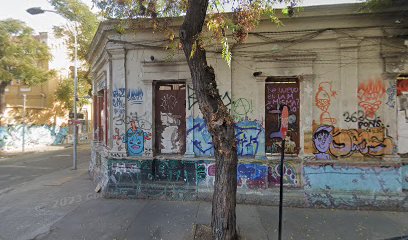
Palacio Pereira
2.0 km
Explore Santiago's Palacio Pereira: A beautifully restored neoclassical landmark blending history, culture, and modern design in the heart of the city.
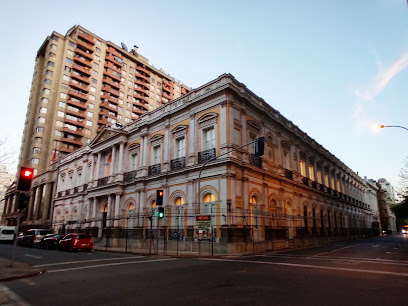
Monumento a los Héroes de la Concepción
2.0 km
Explore the Monumento a los Héroes de la Concepción, a symbol of bravery and a key historical landmark in Santiago, Chile.
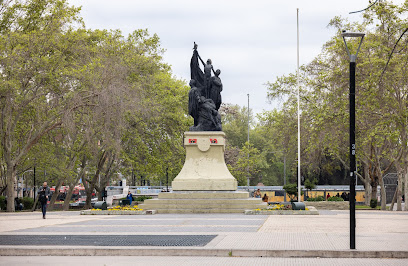
Palacio Larraín Zañartu
2.4 km
Step into history at Palacio Larraín Zañartu, a stunning architectural gem in Santiago, where heritage meets elegance.
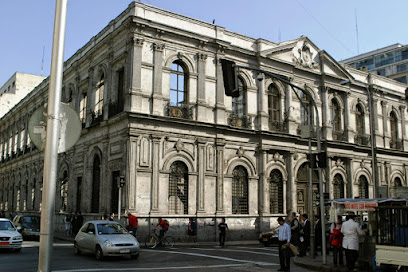
Monument to General José de San Martín
2.4 km
A historical landmark in Santiago honoring General San Martín, a key figure in South America's independence.
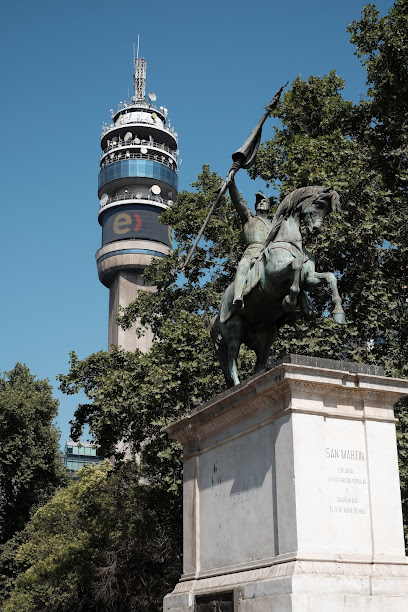
National Congress of Chile Palace in Santiago
2.4 km
Explore the National Congress of Chile Palace, a historical landmark that showcases the nation's architectural beauty and rich political heritage in Santiago.
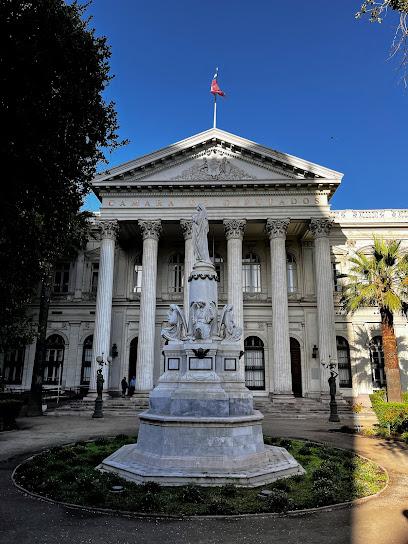
Supreme Court of Justice of Chile
2.4 km
Explore the Supreme Court of Justice of Chile in Santiago, a stunning architectural gem and cornerstone of the nation's legal system, rich in history and significance.
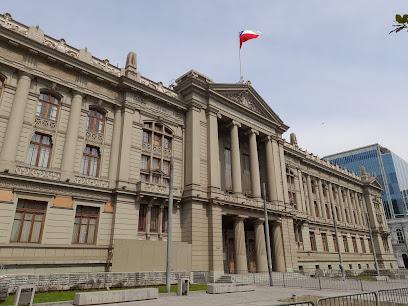
Palacio de la Real Audiencia de Santiago
2.7 km
Explore Chilean history at the Palacio de la Real Audiencia, home to the National History Museum, in Santiago's Plaza de Armas.
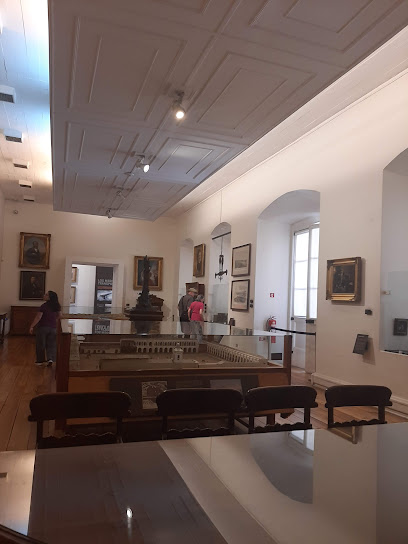
Museo Histórico y Militar de Chile
2.9 km
Delve into Chile's military history at Museo Histórico y Militar, where captivating exhibits narrate the nation's past through artifacts and stories.
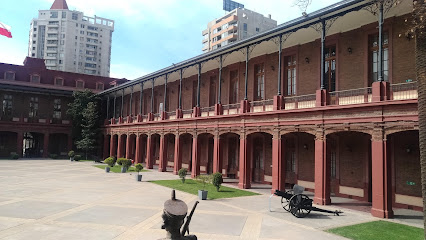
La Vega Chica
2.9 km
Discover the vibrant essence of Santiago at La Vega Chica, a bustling market filled with fresh produce, local delicacies, and unique artisanal goods.
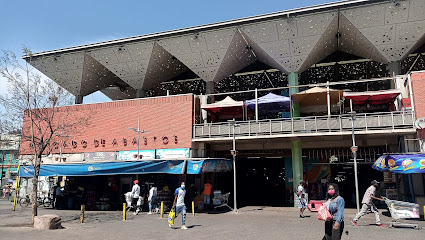
Barrio París Londres
2.9 km
Explore the historic streets of Barrio París Londres in Santiago, where architectural beauty meets vibrant culture in a captivating atmosphere.
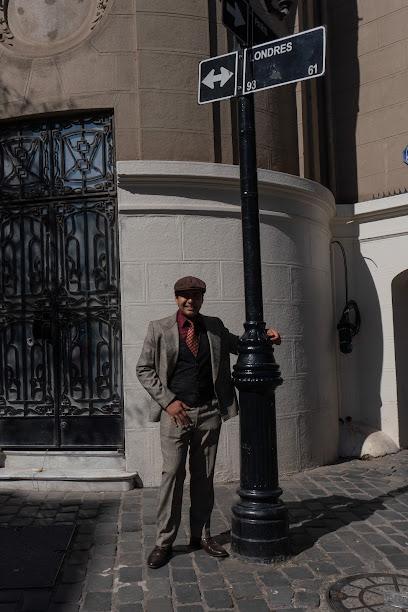
Fuente de los Niños
2.9 km
Discover the charm of Santiago at Fuente de los Niños, a stunning sculpture that embodies joy and artistic heritage amidst beautiful gardens.
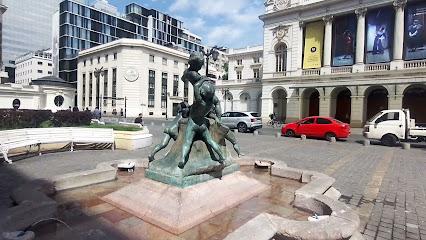
Maipo Wine Tours
3.3 km
Explore the stunning Maipo Valley with Maipo Wine Tours, your gateway to exquisite wines, breathtaking landscapes, and unforgettable outdoor adventures.

Monument to Javiera Carrera
3.4 km
Explore the Monument to Javiera Carrera, a historical landmark honoring Chile's independence heroine amidst the vibrant culture of Santiago.
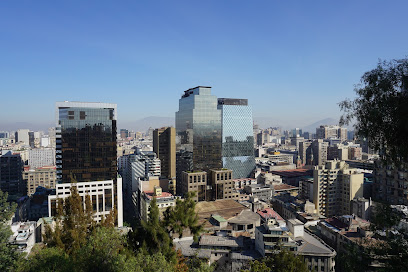
Hao Hwa Restaurant
3.4 km
Experience authentic Asian cuisine in Santiago's vibrant Lastarria neighborhood at Hao Hwa Restaurant. A culinary landmark offering diverse Chinese dishes.
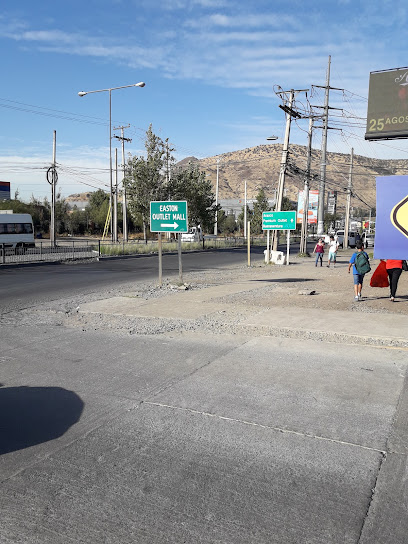
Unmissable attractions to see
MAC Quinta Normal, Facultad de Artes, Universidad de Chile
0.3 km
Discover the heart of contemporary Chilean art at MAC Quinta Normal, an inspiring museum in Santiago's vibrant cultural landscape.
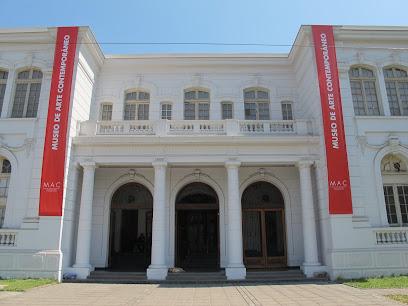
National Museum of Natural History
0.3 km
Discover the diverse ecosystems of Chile at the National Museum of Natural History in Santiago, where nature and education come together beautifully.
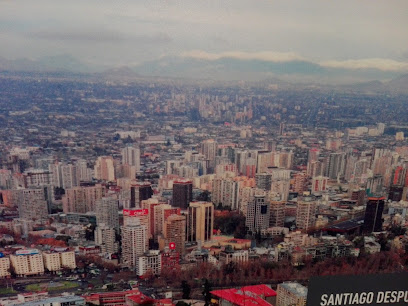
Tunel biogeographical De Chile
0.3 km
Discover the ecological treasures of Chile at the Biogeographical Tunnel, a unique museum experience in Santiago's Quinta Normal district.
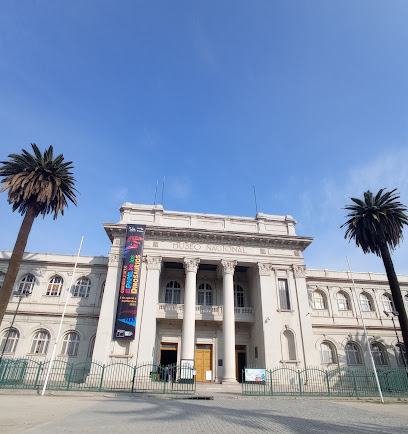
Parque Quinta Normal
0.3 km
Explore the lush landscapes and cultural treasures of Parque Quinta Normal, Santiago's serene urban oasis perfect for relaxation and discovery.
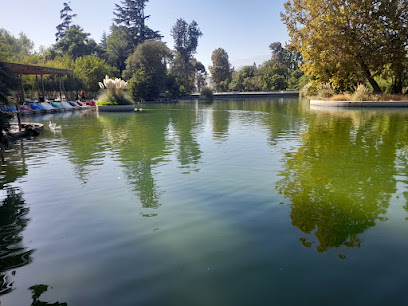
Museum of Science and Technology
0.4 km
Explore the Museum of Science and Technology in Santiago, where science comes to life through interactive exhibits and engaging displays.
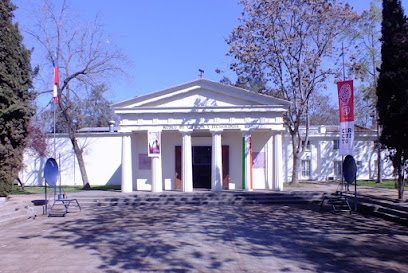
Portales Park
0.6 km
Discover the tranquility of Portales Park in Santiago, a beautiful green space perfect for relaxation and cultural exploration.
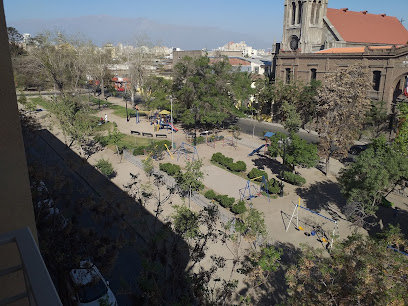
Railway Museum Santiago (Chile)
0.6 km
Experience the charm of Chile's railway heritage at the Railway Museum Santiago, featuring historic trains and interactive exhibits in a scenic park.

Barrio Yungay
0.7 km
Discover the artistic heart of Santiago in Barrio Yungay, a vibrant neighborhood filled with colorful murals, historic architecture, and local culture.
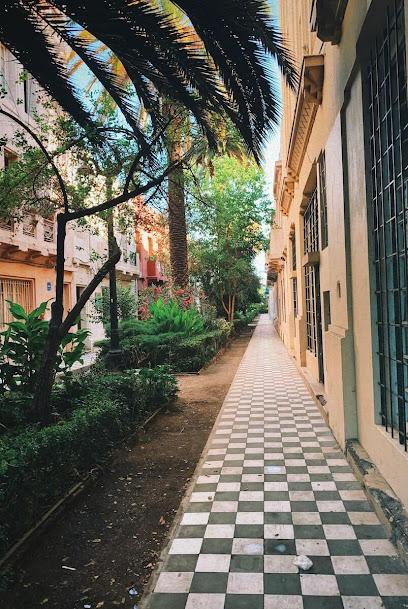
Museo Artequin
0.7 km
Explore the colorful world of art at Museo Artequin, the premier art museum in Santiago's Estación Central, showcasing local and international masterpieces.
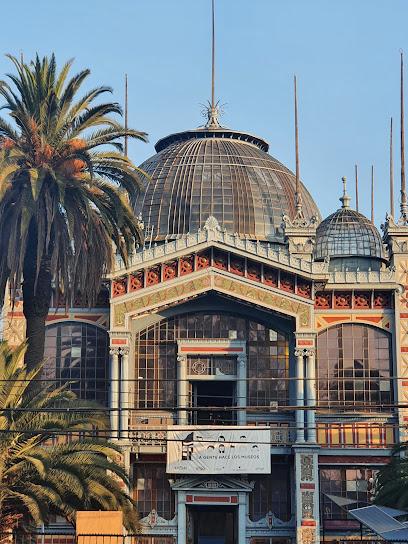
Planetario de la USACH
1.2 km
Discover the cosmos at Planetario de la USACH in Santiago, Chile - a captivating destination for astronomy lovers and curious travelers alike.
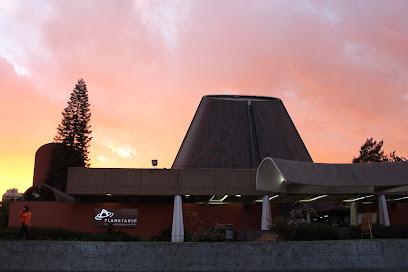
Plaza Brasil
1.3 km
Explore Plaza Brasil, the heart of Santiago's cultural scene, where nature, art, and community converge in a vibrant urban park experience.
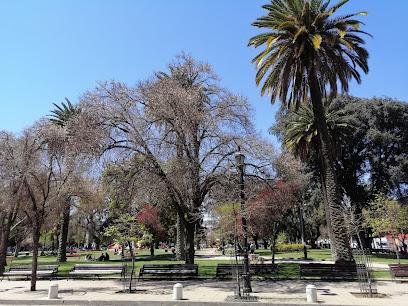
Estação de Esqui Farellones
1.4 km
Experience the thrill of skiing and breathtaking landscapes at Farellones Ski Resort, a winter wonderland near Santiago, Chile.

VASALFA TURISMO
1.4 km
Explore Santiago's cultural wonders at Vasalfa Turismo, your gateway to unforgettable experiences in Chile's vibrant capital.
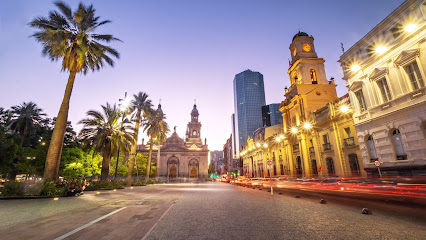
Barrio Concha y Toro
1.4 km
Explore Barrio Concha y Toro, a vibrant neighborhood in Santiago filled with rich history, colorful architecture, and delicious culinary delights.
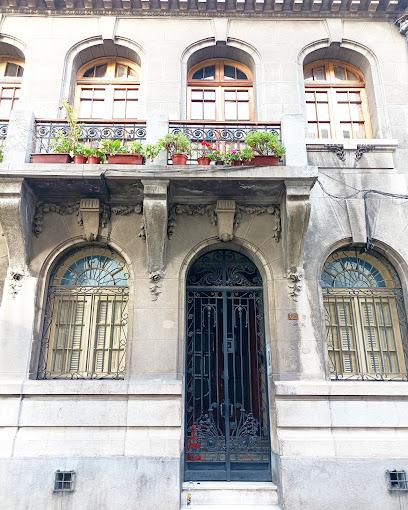
Turismo Tour
1.6 km
Discover the vibrant culture, history, and beauty of Santiago with Turismo Tour, your go-to sightseeing tour agency in the heart of Chile.

Essential places to dine
Los Vikingos Restaurant
1.1 km
Discover Santiago's culinary delight at Los Vikingos Restaurant - where premium steaks meet innovative dining experiences in Barrio Yungay.
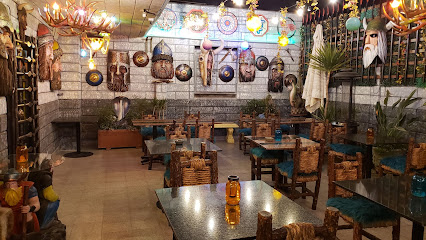
Na Que Ver, Cocineria Chilena
1.2 km
Experience authentic Chilean cuisine at Na Que Ver in Santiago's Barrio Yungay – where every meal tells a story.
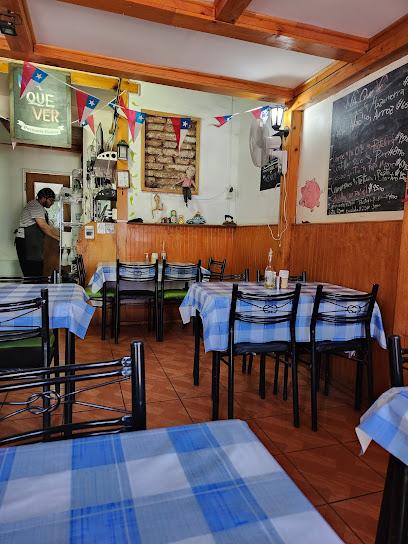
Los Buenos Muchachos
1.2 km
Savor authentic Chilean cuisine at Los Buenos Muchachos – where tradition meets flavor in the heart of Santiago.

Palacio del Vino
1.5 km
Discover the flavors of Chile at Palacio del Vino – where exceptional cuisine meets an extensive selection of local wines in Santiago.
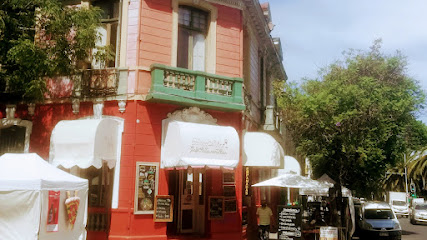
Confiteria Torres
2.1 km
Experience the rich flavors of Chile at Confiteria Torres, Santiago's historic restaurant offering traditional cuisine and delectable pastries.
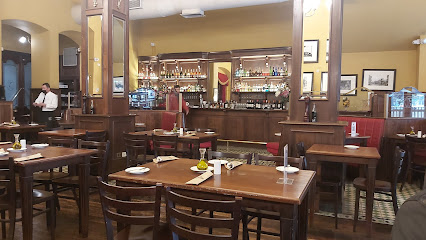
La Chimenea
2.1 km
Experience authentic Chilean cuisine at La Chimenea in Santiago – where tradition meets modern flair for an unforgettable dining experience.
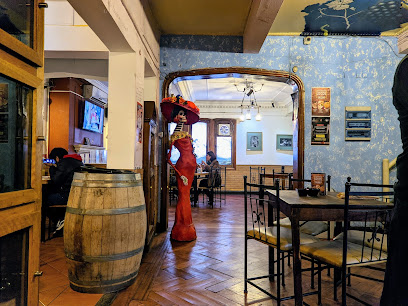
Blue Jar
2.2 km
Experience culinary excellence at Blue Jar in Santiago, where traditional flavors meet modern techniques for an unforgettable dining adventure.

La Piojera
2.6 km
Experience the vibrant flavors of Chile at La Piojera, Santiago's iconic bar and restaurant offering authentic cuisine in a lively setting.
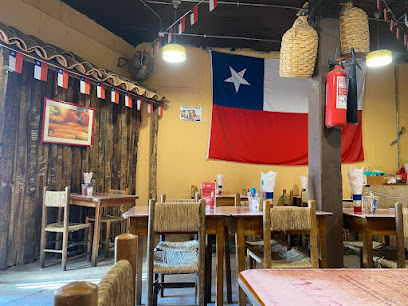
El Naturista
2.9 km
Experience the best of vegetarian cuisine at El Naturista, where fresh ingredients meet vibrant flavors in the heart of Santiago.
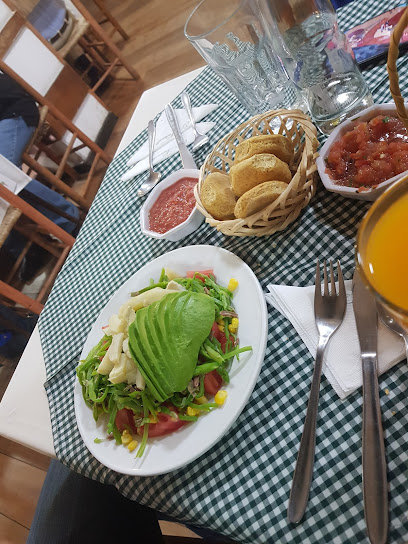
Restaurant Bristol
2.9 km
Experience exquisite Chilean cuisine at Restaurant Bristol - a culinary gem nestled in the heart of Santiago.

Sky Sommelier Restaurante
3.3 km
Discover exquisite grilled cuisine and creative cocktails at Sky Sommelier Restaurante in Santiago - a must-visit culinary destination.

Petit Bernard
3.4 km
Experience the best of Chilean cuisine at Petit Bernard in Santiago's vibrant Lastarria neighborhood.
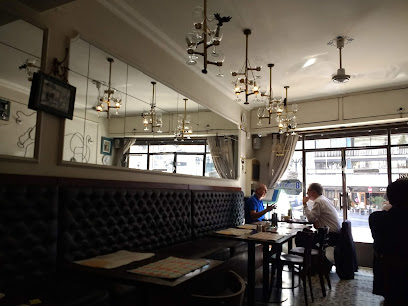
Castillo Forestal
3.4 km
Experience exquisite Chilean cuisine at Castillo Forestal, where delightful dishes meet enchanting surroundings in Santiago.
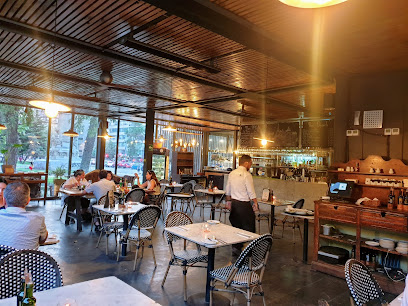
Quitral
3.5 km
Experience gourmet Chilean cuisine at Quitral in Santiago – where tradition meets innovation in every delicious bite.

Holy Moly
3.5 km
Experience gourmet hamburgers in Santiago's vibrant Lastarria neighborhood at Holy Moly - where flavor meets fun!
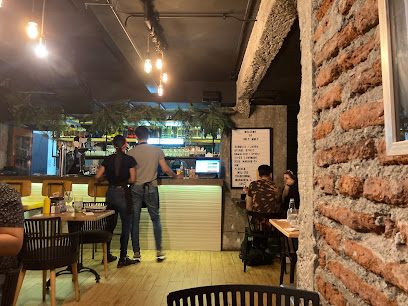
Markets, malls and hidden boutiques
SexShop Sexsexshop
1.0 km
Explore the vibrant adult entertainment choices at SexShop Sexsexshop in Santiago, where comfort and variety meet for an unforgettable shopping experience.

Mall Paseo Arauco Estación
1.4 km
Discover a vibrant shopping experience at Mall Paseo Arauco Estación, where local culture meets global brands in the heart of Santiago.
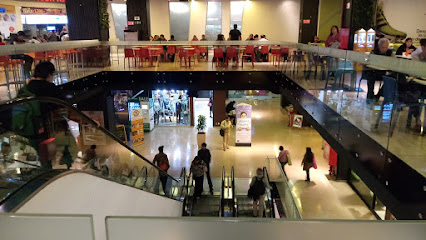
Mallplaza Alameda
1.4 km
Explore the ultimate shopping, dining, and entertainment experience at Mallplaza Alameda in Santiago, Chile.

Nuevo mall chino
1.5 km
Explore the vibrant Nuevo Mall Chino, Santiago's premier shopping destination offering a mix of local culture, dining, and exciting retail options.

Santiago Downtown G.
2.1 km
Explore Santiago Downtown G.: a bustling shopping mall in Santiago, offering trendy stores, delightful dining options, and a lively cultural atmosphere.
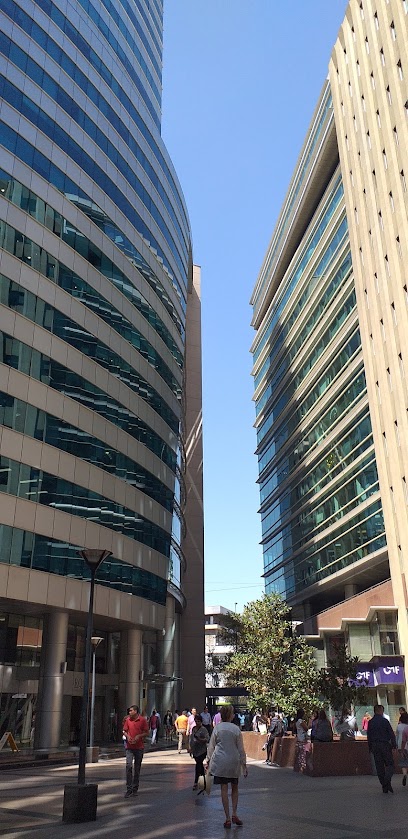
Alameda 949 - Nillkin Kyrios Local 27 A
2.8 km
Discover innovative cell phone accessories at Nillkin Kyrios, a vibrant store in Santiago offering expert advice and stylish products.

Donde Golpea el Monito
2.8 km
Discover the vibrant world of hats at Donde Golpea el Monito, Santiago's charming hat shop brimming with style and culture.
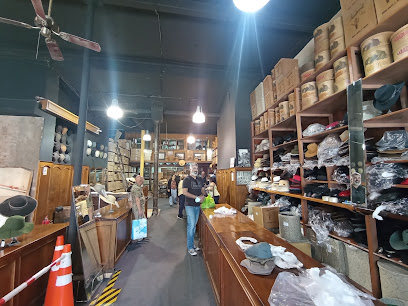
Galería Santiago Centro
2.8 km
Discover the vibrant Galería Santiago Centro, a shopping mall in Santiago that offers diverse shops, dining, and cultural experiences for every visitor.
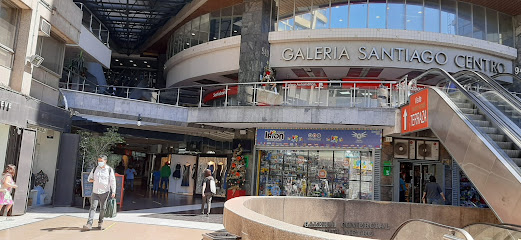
Multicentro Alonso Ovalle (Mall Chino)
2.8 km
Explore unique shopping and local culture at Multicentro Alonso Ovalle, Santiago's vibrant marketplace for treasures and flavors.

Mall Vivo Imperio
2.9 km
Discover a shopping paradise at Mall Vivo Imperio, Santiago's premier destination for fashion, dining, and entertainment.

Easter Island Chilean Fruits
3.0 km
Discover the vibrant flavors of Chile at Easter Island Chilean Fruits, your destination for fresh local produce and exotic fruits in Santiago.
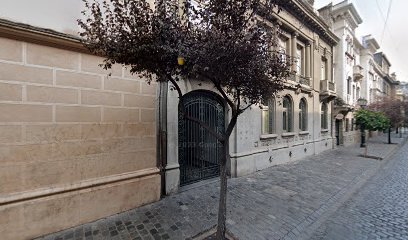
Mercado la Vega
3.2 km
Experience the bustling Mercado la Vega, Santiago's fresh food market, where local flavors and vibrant culture come together for an unforgettable culinary journey.

La tienda de Darlin Chile
3.3 km
Explore the eclectic treasures of La Tienda de Darlin, a charming variety store in Santiago, showcasing local crafts and unique souvenirs.

Centro Artesanal Santa Lucia
3.3 km
Discover unique handcrafted treasures and experience the vibrant culture of Chile at Centro Artesanal Santa Lucia in Santiago.
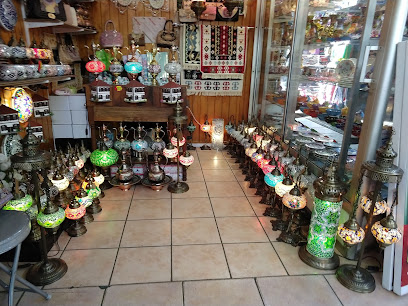
Craft Fair Saint Lucia
3.3 km
Explore the Craft Fair Saint Lucia, a vibrant marketplace filled with unique handicrafts and local artistry that showcases the rich cultural heritage of Santiago.
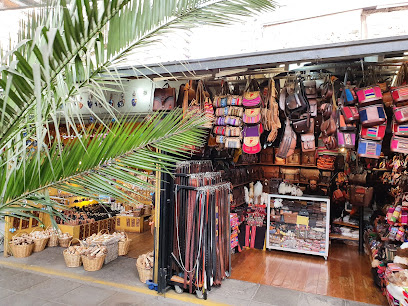
Essential bars & hidden hideouts
Raíces Bar
0.8 km
Experience the vibrant nightlife of Santiago at Raíces Bar, where local culture meets eclectic drinks in a lively atmosphere.
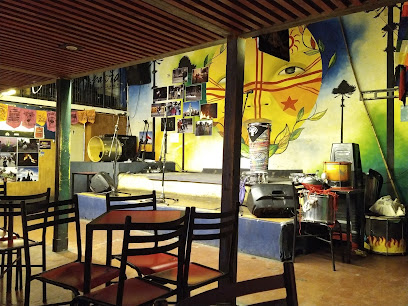
St. Patrick's Day Irish Pub
1.0 km
Discover the heart of Ireland in Santiago at St. Patrick's Day Irish Pub, where great food, drinks, and live entertainment await.
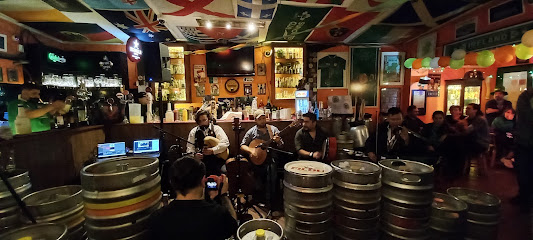
Bohemia restobar
1.1 km
Discover the lively atmosphere and unique flavors at Bohemia Restobar, a must-visit bar in Santiago's artistic Barrio Brasil.

Saint George´s Gamer Bar
1.1 km
Experience the ultimate fusion of gaming and cuisine at Saint George's Gamer Bar in Santiago's vibrant Barrio Yungay.

Burdeos Santiago
1.3 km
Experience the vibrant culinary scene of Santiago at Burdeos, where delicious food and a lively atmosphere await you.
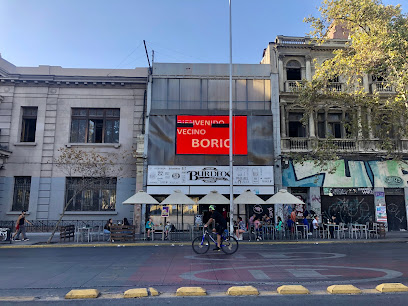
Matildas Hotel Boutique
1.3 km
Discover the charm and elegance of Matildas Hotel Boutique, your perfect retreat in Santiago's vibrant Barrio Brasil, blending luxury with local culture.
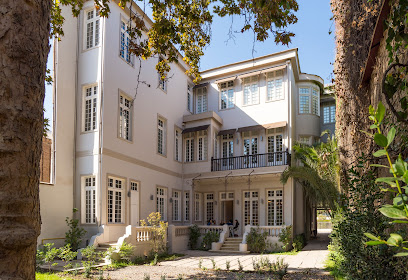
The Clinic Brasil
1.3 km
Immerse yourself in Santiago's nightlife at The Clinic Brasil, a vibrant bar offering unique cocktails and a lively atmosphere.

Club Callejón
1.3 km
Discover the vibrant nightlife of Santiago at Club Callejón, a bar and restaurant blending local flavors with an exciting atmosphere.
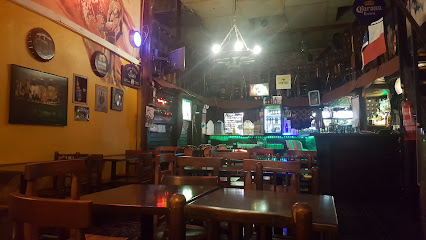
D'angelus
1.3 km
Discover D'angelus, a lively bar in Santiago offering exquisite drinks, local flavors, and a vibrant atmosphere perfect for unwinding after exploring the city.
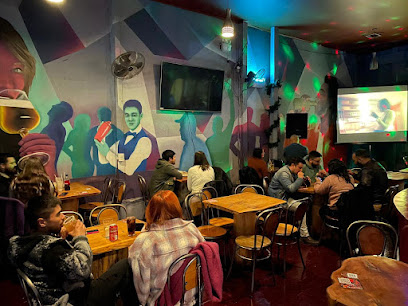
Goodrinks
1.4 km
Discover the vibrant nightlife at Goodrinks, a must-visit bar in Santiago offering a diverse drink selection and a welcoming atmosphere.
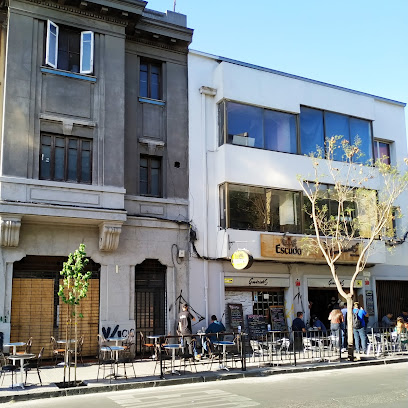
Donde Naresh - Exquisita comida del Sur de India
3.0 km
Explore the authentic flavors of Southern India at Donde Naresh, a top-rated Indian restaurant in Santiago, offering a vibrant culinary experience.
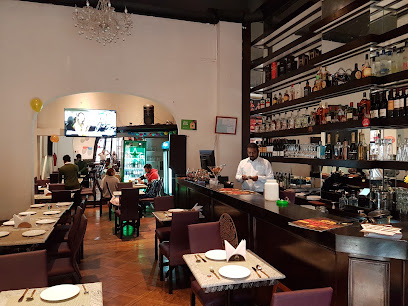
Stgo
3.1 km
Experience the vibrant nightlife of Santiago at Stgo, a lively bar offering a mix of local culture and exquisite drinks in an inviting atmosphere.
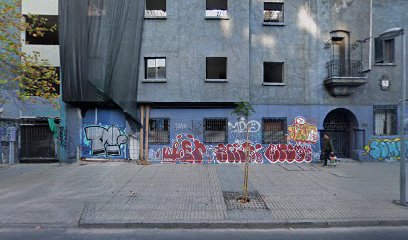
Red Pub
3.4 km
Experience the vibrant atmosphere and delicious grill specialties at Red Pub, a must-visit destination in Santiago for food lovers and social enthusiasts.

Bar Don Rodrigo
3.4 km
Experience the vibrant nightlife of Santiago at Bar Don Rodrigo, where excellent cocktails and a friendly atmosphere await.
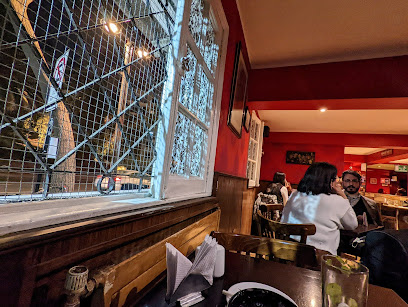
Barra Experimental
3.5 km
Discover the unique charm of Barra Experimental, Santiago's eclectic bar that combines craft cocktails with a trendy barber shop vibe.

Nightclubs & after hour spots
Blondie
1.2 km
Experience the electric nightlife of Santiago at Blondie, a vibrant disco club with diverse music and a lively atmosphere.

Night Club
1.8 km
Immerse yourself in Santiago's nightlife at this energetic night club, where music and dancing create unforgettable memories.
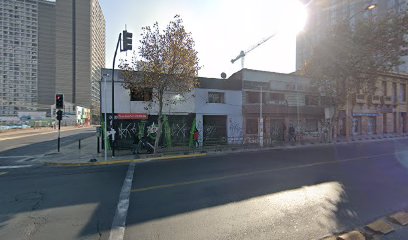
PALLADIUM GLENN CLUB
2.8 km
Discover the electrifying nightlife at Palladium Glenn Club, Santiago's premier destination for dancing and live music in a vibrant atmosphere.
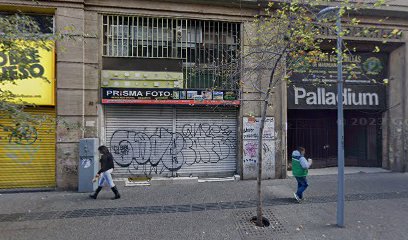
Cabaret Puzzle
3.0 km
Discover the electrifying atmosphere of Cabaret Puzzle, Santiago's top night club for cabaret shows and dancing.
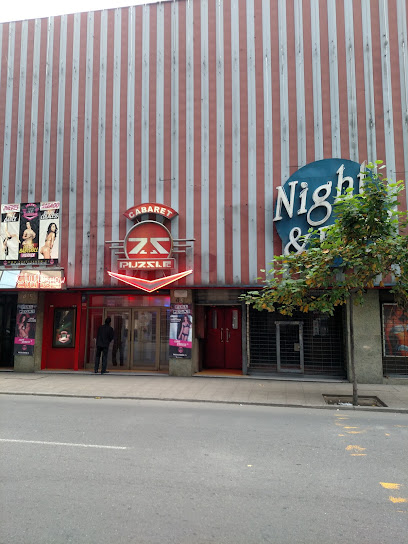
Kim
3.0 km
Experience the vibrant nightlife of Santiago at Kim, a premier adult entertainment club with lively performances and a dynamic atmosphere.
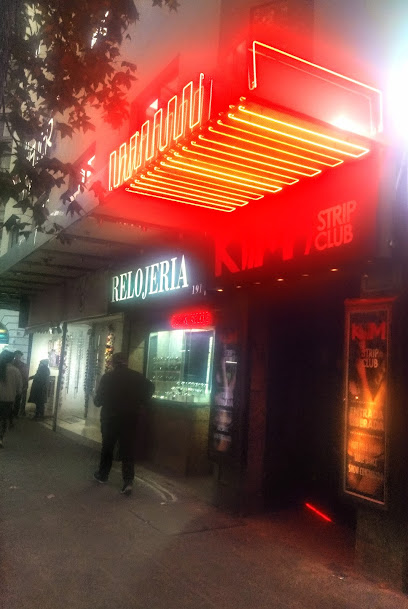
Club de Noche
3.2 km
Experience the electrifying nightlife of Santiago at Club de Noche, where unforgettable music and entertainment await every night.

Club Room
3.3 km
Experience Santiago's vibrant nightlife at Club Room, the ultimate destination for unforgettable nights filled with music, dancing, and fun.

Club Soda
3.8 km
Experience Santiago's vibrant nightlife at Club Soda, the ultimate disco club where music, dancing, and culture collide in an unforgettable atmosphere.

Diosas CLUB
3.9 km
Experience Santiago's nightlife at Diosas CLUB, where music, dance, and unforgettable moments come alive in a vibrant atmosphere.

Espacio 93
3.9 km
Discover the vibrant nightlife of Santiago at Espacio 93, a premier night club and bar in Recoleta where locals and travelers come to dance and unwind.

Recuerdos del Ayer
4.0 km
Experience the vibrant nightlife of Santiago at Recuerdos del Ayer, where music, food, and fun come together for an unforgettable evening.

Club Chocolate
4.0 km
Dive into Santiago's nightlife at Club Chocolate, where electrifying music and a vibrant crowd create unforgettable memories.

Jammin-club
4.0 km
Experience the vibrant energy of Santiago's nightlife at Jammin Club, where unforgettable moments and pulsating beats await you.
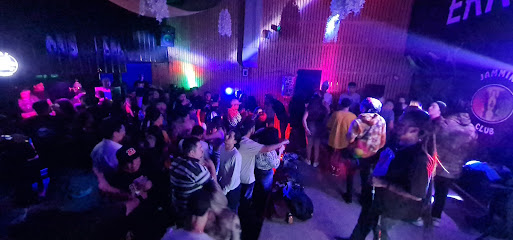
Club Burdel
4.0 km
Discover the electrifying nightlife and vibrant atmosphere at Club Burdel, Santiago's premier night club in Recoleta.
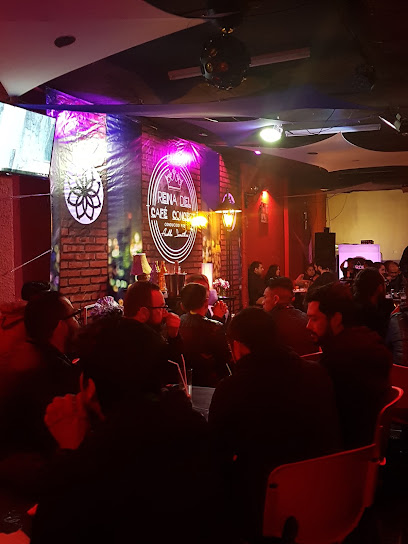
The Box Stgo
4.1 km
Experience the pulse of Santiago's nightlife at The Box Stgo, a vibrant disco club and bar in Recoleta, where music and energy come alive.




